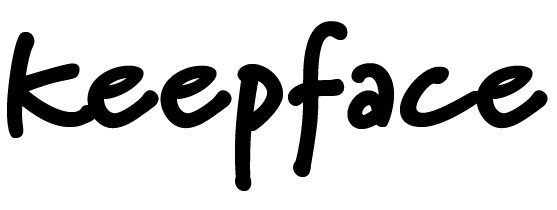The Impact of Coronavirus on Marketing Industry
As one of the foremost human tragedies, Coronavirus is affecting the lives of the world population, endangering the health of hundreds of thousands of people, bereaving social freedom. It has also dramatic effects on the businesses in public and private sectors. It is difficult to define the true financial cost of the virus on the economy as the outbreak spreads day-by-day to new regions.
Beginning in China and following in the world, leading technology, apparel, automobile companies have been compelled to shut down their factories, close sales stores, and lay off employees. The downturn put pressure on logistics, supply chain management, and shipment services.
Businesses are canceled
Lockdown due to the Coronavirus negatively affects the B2B market too. Major tech conferences, sports, art events are canceled causing billions of losses to the whole world economy. According to the US B2B marketers, in-person communication and tradeshows are the most effective channels for driving conversion and lead generation. Expected cost of cancellation of the biggest tech conferences is $1B loss.
What does this mean for marketers?
It is vital to keep relations with customers in the first wave of the crises. Discounts, special offers are a good way to engage with current customers.
However, not to exploit the fear people are experiencing, platforms like Google and Facebook are blocking any ad that might be abusing the situation. From the beginning of the outbreak, Facebook started to ban ads for goods like hand sanitizers and face masks. It also prohibited the sharing of misinformation causing panic, or about the cure of the virus.
Some brands renovate delivering services
Due to the increased online shopping Amazon focuses on the stocking and delivery of the essential products following the situation. The company prioritizes the delivery of household staples, healthcare supplies, personal care, grocery and baby products. Sales outside these categories are suspended up to 5 April, which can be extended.
Cut down in marketing budgets
According to the Econsultancy and Marketing Week’s survey, product and service launches are delayed to uncertain times. 55% in the UK and 56% in US marketers said that their marketing campaigns are under review or delayed.
Besides the travel and hospitality, FMCG, restaurants, entertainment industries seriously stumbled in the first quarter and expected to continue in the second quarter, as well. Reduced ad spend on these sectors also cause fall off in the budgets of Google and Facebook. Considering the fact that in 2019, travel ads accounted for 10% of Google’s ads revenue. Marketers anticipate a 30% to 45% drop in Facebook’s revenue because of hits on travel, consumer packaged goods, retailer and entertainment in the first quarter.
Social responsibility
It is the best time to build public trust that will always be remembered. Through corporate social responsibility programs, companies take initiatives for the benefit of their employees and society. The different range actions include covering sick leaves of workers, helping the government to fight against the disease, producing face masks or hand sanitizers, giving food support away and etc. The American fashion brand Ralph Lauren donates $10M for the relief of the virus. The donation will go to the WHO fund, the corporation’s employees and cancer institutions.
Several brands run different social campaigns to invite people to stay at home. The global franchise chane McDonald’s separated its golden arch M to support self isolation. The change in the logo is only made in the social platforms. Nike, which closed all stores in Western Europe, Canada, Australia, New Zealand, and the US, launched Play inside, play for the world campaign. To prevent the spread of novel Coronavirus, Starbucks stops the use of reusable cups in its stores. Plus, it offers a 10% discount to customers who bring their reusable cups or ask to use the brand’s cups.
Despite its diminishing ad revenues, Facebook offers $100 million grants as cash and ad credits to 30 000 small businesses in 30 countries that it operates. Along with donating 10M masks to the citizens in the US and Europe, Apple launched a website and an iOS app that allow users to screen themselves for the Coronavirus. Another tech giant Google gave $800M mainly in the ad form to support the fight against the virus, including $20M in Google Cloud for academic institutions and researchers, $200M for NGO and financial institutions, $340M for small and medium enterprises.
Difficulties create opportunities
With all complexity and obstacles, the virus challenges all markets to redirect their marketing and sales plans and utilize them to the current conditions.
Time spent on social media has enormously been rising as more people stay-at-home to minimize the risk of the virus. Now people have “unlimited time” to produce and consume more content than ever.
According to a report by Izea, 66% of the correspondents predict their social media usage will increase. Internet users believe that YouTube usage will increase by 64% while Facebook will increase 63%, followed by Instagram by 43% and Twitter by 34%.
Remote working is a new era now
Several business events shifted online such as Google Cloud Next, IBM’s developers conference. The loss of face-to-face communication and the cancellation of social events creates a huge demand for online conferencing platforms such as SLAC, webinars. Slack said there is almost a 40% increase in the numbers of paid customers. Daily active users of Microsoft Teams more than doubled from November to March. It also added new features to the platform for telehemedice.
The growing need for telehealth and teleconferencing accelerates the implication of 5G technology.
According to the Appsflyer’s report, there is a 15% increase in organic non-gaming app installs starting from mid-February. The non-gaming app categories mainly include communication, finance, health & fitness, news, a utility which means people turn their social habits to online presence.
Spike in online gaming industry
Social distancing makes people gather and entertain on online games. Video gaming companies either extend or introduce new promotions. In China, total game downloads in Apple’s app stores made a 27.5% increase that is a 12.1% rise in revenue. According to Douyu’s streaming index, games like “Honor of Kings”, “League of Legends” and “Playerunknown’s Battleground” now are twice as popular compared to 2019. “Honor of Kings” reached 63 million views during the New Year holiday.
In the US there is 75% upswing in the number of online game players. The largely damaged Italy sees a 70% increase in internet traffic which is mainly contributed by the gaming industry like “Fortnite”, “Call of Duty: Warzone”. Steam reached 22.5 million all-time user peaks during last week.
What is happening to influencer marketing in the meantime?
It is important to engage with the audience during this hard time. Social distancing is largely overwhelming fashion, lifestyle, travel influencers whose content is mainly based on outside activities.
Due to economic stagnation and slacking consumer behavior in different fields, lots of clothing, entertainment brands are constrained to withdraw or delay their partnerships. But, this will not cause the influencer marketing to go away.
We all know it is not the right time to pose in the perfect looking outfits at social events, holiday travels. At the same time, we see an increased number of social media usage, and engagements rise up. It is an opportunity to create useful and educational content and rebuild trust with the followers. As authorities who influence our lives, they can call people to understand the situation and follow the guidelines, spread positivity, advise on activities to effectively spend our time at home.
The different types of content such as streaming daily vlogs to show how they use their time well in these hard times, adding movie and book recommendations, distant learning programs, and home recipes. It will also help to reform the market in a more authentic and communication-based nature.
Gaming, fitness, yoga and wellbeing influencers are the most followed categories in the stay-at-home period. Psychology experts are the next category people feel the need in self-isolation period. Changing living habits, fear of health issues, and financial uncertainty in many traditional works make people seek to keep physical and mental balance in a sedentary lifestyle.
Challenges with uncertainty
It is early to voice the precise amount of economic loss. Continued uncertainty hinders to define needed actions to be taken. Drop-in the main spheres of the economy makes brands alter their marketing, sales strategies, and set new budgets.
Although negative consequences of the Coronavirus virus is expected to continue in the upcoming months, a positive lesson that we learned in these days is global lockdown opened a new and ongoing stay-at-home economy. The vast majority of businesses more or less can perform the same results as in the in-person working. Now it is possible to serve food, grocery, health care kits to millions of people at the same time. Purchasing habits of people will not be the same as the pre-break period.


